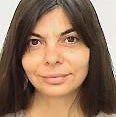
My childhood forests are tall, old growth trees clinging to mountainous slopes.
My sister and I would spend the first two weeks of our summer break at camps in the mountains of Albania. Getting a spot at a camp was a coveted ‘luxury’ but my sister and I were lucky -our mother was an official chaperone. She would wake us at 5 am to walk in the forest before everyone else was up. I have to say that as a five year old I didn’t appreciate the scenery. It was too early in the morning and anyway who cared about birds and foxes? (One time though we did see a red squirrel jumping from tree branches and even I had to admit that was awesome.)
But mountain forests still held a magical place in my imagination. The Brothers Grimm’s stories almost always take place in forests full of strange creatures; a place teeming with plants and animals that hold the power of good and evil. Humans have long recognized the dual forest identity; it is the place of caution and danger but also the place of possibilities and wonder. Like for my Russian friends, who tell of gathering berries and mushroom in the magnificent Russian forest to supplement the meager rations of the Soviet era.
We now live in a world of megacities and many of us have lost this direct connection with the forest. But the magic remains as strong as ever.
Mountains provide much of the world’s water supply. Their forests provide wood and materials for energy and infrastructure. Forests continue to be the source of new medical discoveries. Climate and carbon emissions and reduction are inextricably connected to the forest. The forests are vital for maintaining, preserving and renewing landmass, water resources and flora and fauna diversity.
And fortunately there are still people who know the forest intimately and care deeply about it. For millions of indigenous people around the world, the forest is their home. I was reminded of this connection watching my colleague Pabsy Pabalan interview Myrna Cunningham, an indigenous Misquito leader form Nicaragua. Myrna is a renowned leader of ingenious rights, a teacher and a doctor. But she will tell you she is first, and foremost, a daughter of the forest.
Myrna told the myth of the deity Niki-Niki, who lost his son in the forest. Distraught and crying as he searched, Niki-Niki spread seeds on the ground in the hopes the child would find his way home. His tears became the Rio Coco and his seeds became the forest around it. As *Myrna says, “For the indigenous people the forest is the area of spiritual reproduction. It’s the place we earn our living from but also the place where the spirits reside. It’s the place of spiritual life and reproduction.”
Myrna has dedicated her life to fighting for better education, better lives for women, better health and for the rights of indigenous people as stewards of their forests. Their knowledge is vital to mitigate the ravages of climate change. And her passion for the forest and her energy are infectious. Listening to Myrna’s call to action brought to mind a quote from Joseph Campbell, “We need myths…. that will identify the individual with the planet”.
And as Myrna says, we can start by listening to the people from the forest.
*Watch the interview in Spanish here.


Join the Conversation